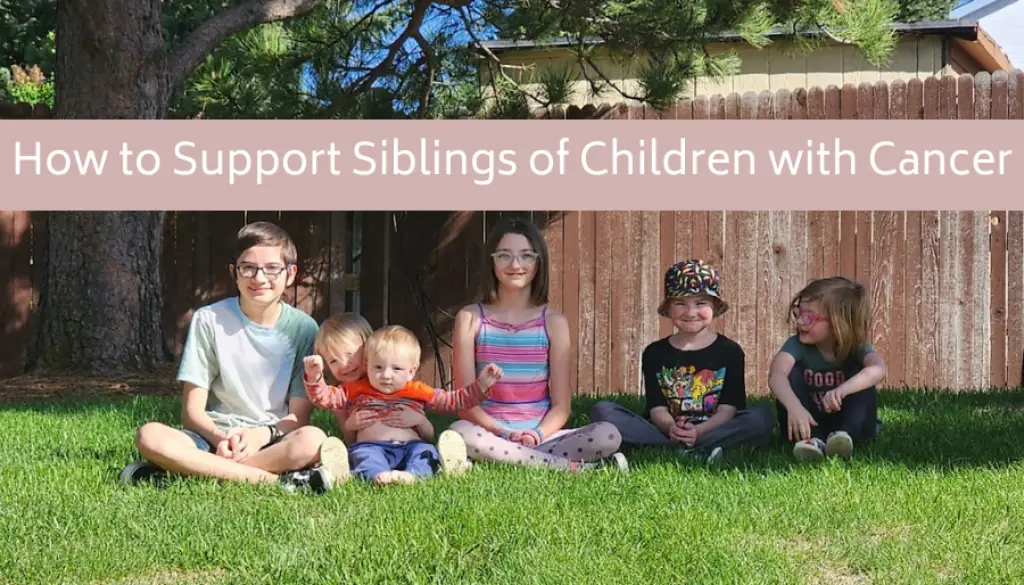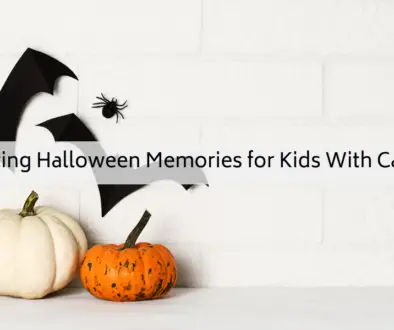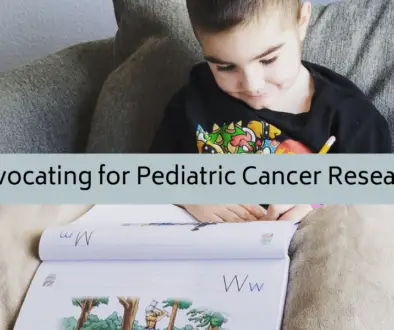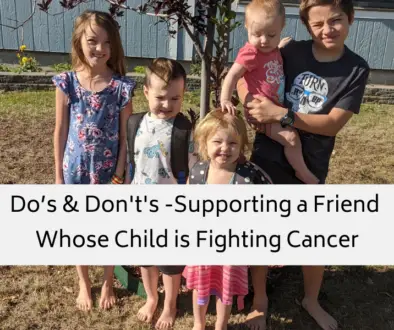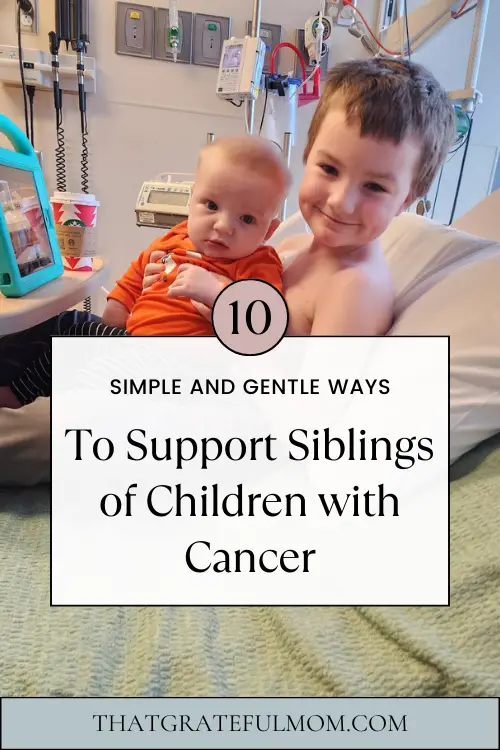
How to Support Siblings of Children with Cancer
As part of Childhood Cancer Awareness Month, I wanted to write a few posts to help other families who may have recently faced a cancer diagnosis or know someone who has. Childhood cancer is not talked about enough, and our children deserve better. Today’s post is about how to support siblings of children with cancer. When a child is diagnosed with cancer, the emotional needs of siblings are immense and should be handled delicately. I’ll share tips that have helped us with our children throughout this journey and how you can help support others in this same situation. These blog posts are not easy to write, as you can probably imagine, but it’s crucial to bring light to these topics and help other families who may be facing the same road we have. I wish no one knew this life, but that’s not the case.
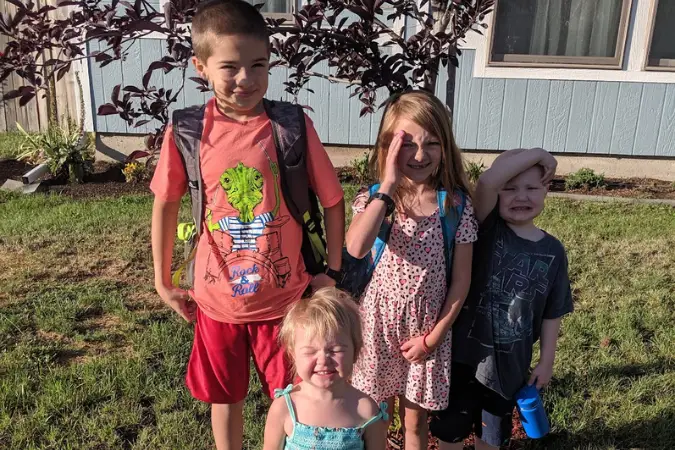
Lucas and his siblings before dignosis
In this post on how to support siblings of children with cancer, we’ll cover the following topics:
Understanding Siblings’ Reactions and Emotions
Communication and Open Dialogue
Normalizing Emotions
Maintaining a Sense of Normalcy
Special Attention and Quality Time
How to support siblings of children with cancer through empowerment
Providing Information
Support networks
Siblings as advocates
Addressing guilt and self-care
Here are other posts from this series:
What I Wish I had Know Before my Son’s Cancer Diagnosis
If you’re new to my blog, welcome! I am so glad you found my site! I am a mom of six, including our cancer warrior, Lucas. I’m married to my best friend, and I blog about all things motherhood, non-toxic living, our cancer journey, and recipes for large families.
For the month of September, I wanted to write more about our childhood cancer journey and the ups and downs throughout. These posts are not easy to share, but if other moms on the same journey find my page or someone researching childhood cancer sees them, I want them to know they’re not alone. This can be incredibly isolating. If you’re a mom of a cancer warrior or know someone who is, please consider sharing my posts with them. I’d love to chat and hear about your journey!
Okay, now let’s get into it. Siblings of children with childhood cancer struggle with the diagnosis as much as the child going through treatment, just in different ways. These tips on how to support siblings of children with cancer will help keep communication open and give them much-needed support on this challenging journey.
Understanding siblings’ reactions and emotions
When our son was diagnosed with cancer, our kids ranged in age from 10 to 1. Having conversations with them about our son’s diagnosis was incredibly difficult. We had to walk this line between telling them too much and scaring them, and not telling them enough and them feeling like we were keeping something from them.
Some common emotional reactions that siblings may have are fear, confusion, sadness, anger, and guilt. Diagnosis and treatment of a sibling tend to disrupt daily routines and emotional well-being, causing struggles. It’s crucial to offer support and comfort for siblings through this process. Allow siblings to ask questions, be patient while they process the news, and update them on progress as you see fit.
Communication and open dialogue
Maintaining an open dialogue with children may seem complicated, but it’s important to keep trying. They may have questions they are afraid to ask, fears they don’t want to voice, or not know how to express their thoughts. Let them know they can ask any questions they want without fear, and assure them that you will share updates and important information with them as it comes up.
Creating a safe space for siblings to feel the range of emotions that are bound to happen offers security through these tough times. Many hospitals offer support groups as well where other families may attend and share their stories so that your children know they are not alone. All the change and unknown can be difficult for children to handle, and offering a sense of safety and security can help them open up. Don’t be afraid to share some of your emotions, too. Knowing you are experiencing the same emotions can also offer a sense of comfort for children.
Maintaining a sense of normalcy
This is one of the most significant issues we’ve faced through my son’s diagnosis and treatment. We had no idea how intensive his treatment would be or how often he would end up in the hospital due to complications or infections from treatment. Unfortunately, there are a lot of unknowns with treatment that can make it hard to plan for. Explain this to your kids and let them know that schedules may have to shift throughout treatment, but you’re trying your best to maintain some normalcy. Explain that you can’t make promises but that you will do everything you can to continue normal activities throughout treatment.
When our son relapsed, we had to move about an hour away to be near the hospital where he was treated. We could not keep the kids in school, have my husband work full time, and have someone with our son at the hospital. My kids understood the necessary changes and move, but it was the toughest season we ever went through. They lost their stable schedule, access to friends, and any sense of normalcy they once knew. We tried really hard to make things work, but it was a difficult season.
It’s okay not to have all the answers or know what to do. Cancer throws a wrench in the plans, leaving you to pick up the pieces. It’s normal to feel frustrated by all the changes happening. Remember to be patient with yourself and your kids as they face all this.
I know it’s hard knowing what to do and how to support siblings of children with cancer, but I hope you also know that you are not alone. Here are some support groups and resources available:
Special attention and quality time
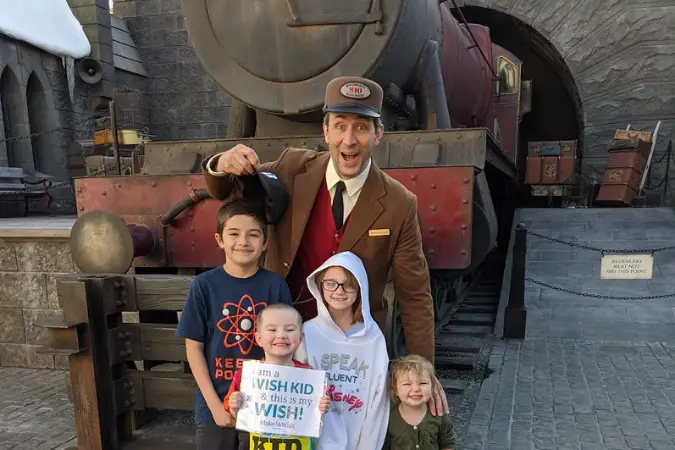
Lucas’ Make a Wish Trip in February 2020
Sometimes, just spending time with your kids can help more than you know. Taking them out to a movie, playing a board game together, grabbing an ice cream, chatting, etc. Undivided attention goes a long way. Make sure you are planning time in your schedule to give siblings attention throughout this journey.
Creating positive memories and strengthening your parent-sibling bond will help when things get difficult. Let your kids vent to you, tell you about what’s happening in their lives, and help them connect with you as much as possible. I will always cherish the time I spend with my children, especially after having no choice but to spend time away from them throughout our son’s treatment.
I went a month after Lucas’s bone marrow transplant without seeing my other kids. He couldn’t leave the hospital until he met specific criteria, and our kids couldn’t visit due to COVID. It was difficult, but it made our time together even more special.
How to support siblings of children with cancer through empowerment
Giving our other children something to do throughout treatment to help involve them in the process gave them a sense of responsibility and allowed them to feel involved. It was really great to see. It helped them regain some control in a pretty awful situation and helped them feel empowered. They would help bring supplies when I needed to give Lucas medications, prepare parts of our meals, and spend time with Lucas so he wasn’t lonely on the days he was too weak to do anything more than hang out in bed. Feeling like they had control again and could be involved in helping their brother was one of the best things we could do for them at the time. A lot was out of our control, so giving a little of that back helped a lot.
Providing information
It can be hard to know what to tell siblings and what to keep quiet. Siblings deserve to know what is happening, but you don’t want to add more stress. In our situation, we were very careful to give pieces of information without scaring our children too much. They know they can tell us if it’s too much, but more often than not, they appreciate us including them as much as possible.
This is where keeping communication open is crucial. Provide honest information and ask for feedback. Some children may not want to know anything, while others want to be included. I can’t tell my 4-year-old the same information I share with my 12-year-old. It’s not appropriate. Instead, we give our younger children basic information and ask our older children what they would prefer. It’s challenging to navigate, but we keep trying. Take it day by day, and make sure you’re talking with your children and asking for their feedback.
Support networks
I mentioned some resources that could benefit families, but I want to mention them again. The value of connecting with other families who have been through this same fight is unlike anything I could have imagined. To know we’re not alone has been invaluable. I wish no family knew this life, but finding others who understand has helped us on our darkest days. Many hospitals have connections for counselors and family therapists who specialize in childhood cancer and can offer specific advice for your situation.
Some people don’t want to talk, and that’s okay, too. Just make sure you are finding some outlet to release the emotions you’re feeling. That could be exercising, journaling, writing, etc.; the options are endless. But having a way to de-stress is necessary in this process.
Siblings as advocates
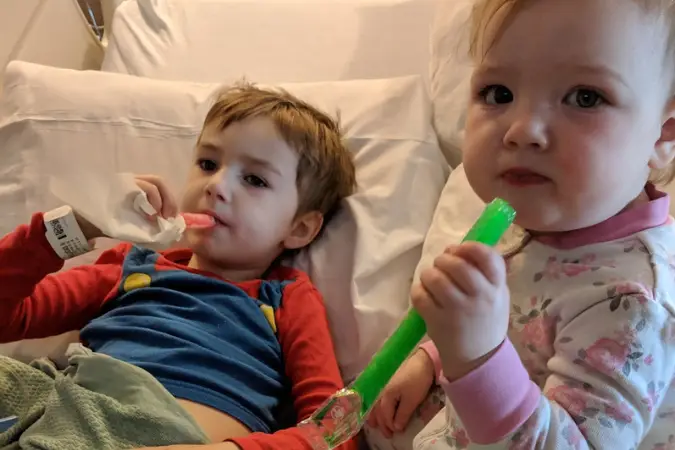
Lucas and his little sister, Luna just after diagnosis
Childhood cancer is severely underfunded. All childhood cancers combined only receive 4% of the annual research budget. It’s a sickening fact that needs to be changed, and who better to raise awareness about childhood cancer than siblings of children fighting cancer?
There are dozens of organizations raising awareness and working to secure more funding for more research. Here are a few I love and trust:
Many host virtual walks, fundraisers, and social media pages to raise awareness, and siblings of children with cancer can easily join the fight to help this cause. Knowing they can help bring awareness to these severely underfunded children fighting cancer can also offer a sense of empowerment.
Addressing guilt and self-care
If your children are dealing with guilt throughout their siblings’ diagnosis, this is a common experience. They may struggle with wondering why it was their sibling and not them or why it was their family at all. Instead of trying to change their feelings, allow them to talk about it with you. Explain that no one could have known this would happen and that no one could control how this happened. Explain to them that what they feel is not uncommon and should be expressed.
Self-care is incredibly important in this situation and should be encouraged when possible. Help your children manage stress by going for a walk, getting outside, and letting their feelings out either verbally or on paper. It may help free them from some of the guilt and fear they feel during this difficult time. This goes for you, too. As a parent, you are dealing with many moving parts and deserve to step away for self-care, too. Make sure you reach out for help, talk about how you’re feeling, and do things to make you happy throughout this journey. You still deserve to do things that make you happy.
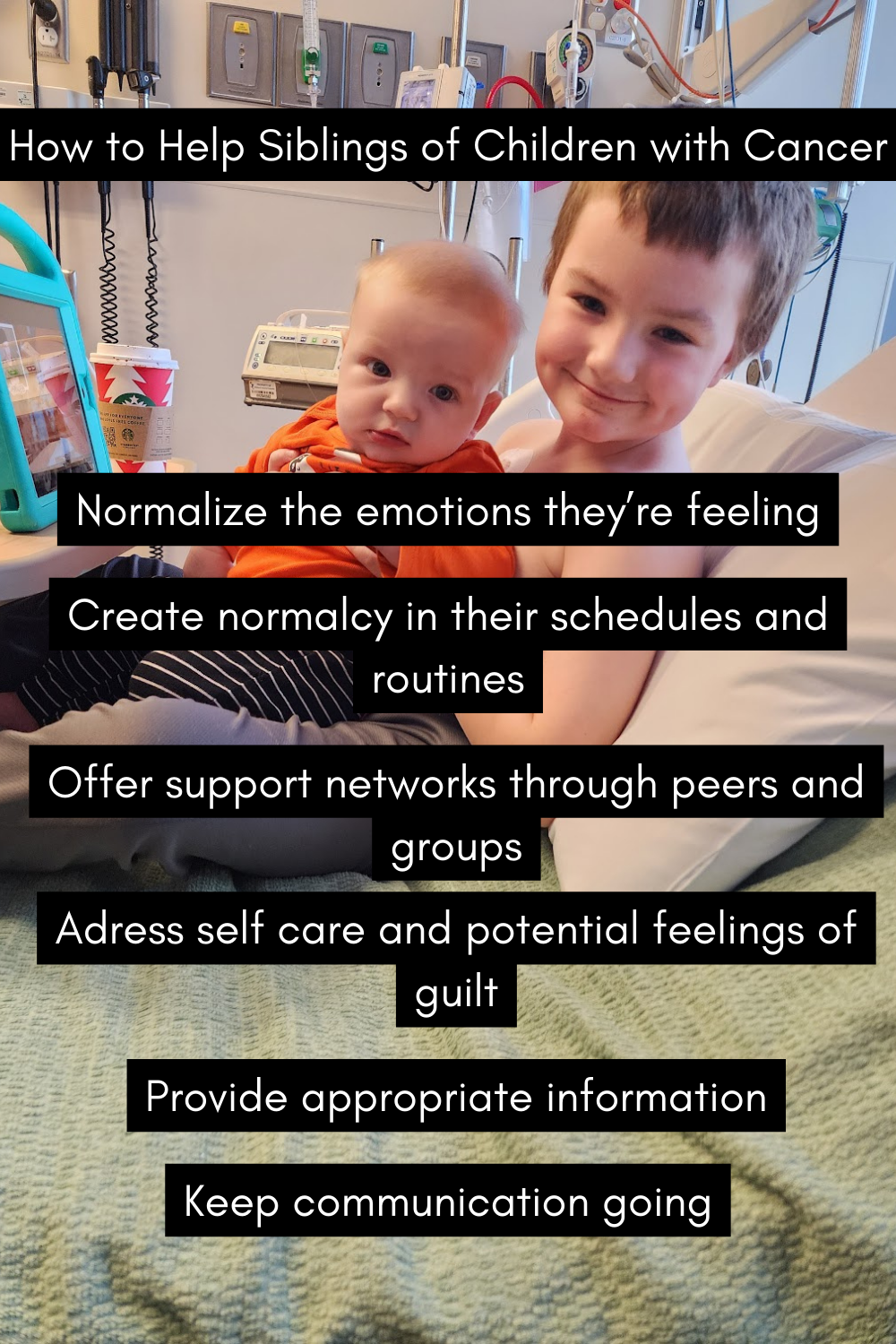
Conclusion
Knowing how to support siblings of children with cancer can be difficult, but I hope this post has given you some ideas. Childhood cancer isn’t rare, but it’s not talked about enough. If you or someone you know is facing a cancer diagnosis and needs support, please share the resources mentioned in this post. Supporting siblings throughout a cancer journey may be difficult. Still, by being there, allowing them to share their fears and emotions, and keeping the line of communication open, you’re allowing them a safe space to express what they are going through.
I hope this post has been helpful for you. As a mom of a cancer fighter, I know how difficult this journey can be. Please reach out if you need more advice or someone to talk to. I am so grateful you are here.
-M
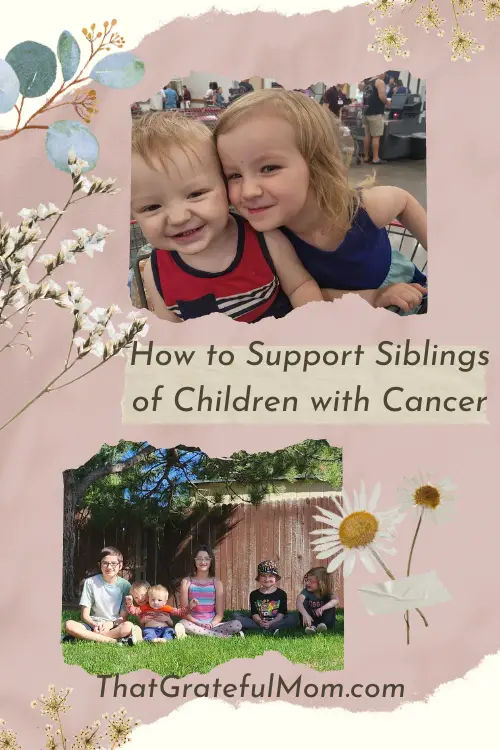
This site may contain links to affiliate websites including Amazon. I may receive an affiliate commission for any purchases made by you through Amazon or other potential affiliates and no additional cost to you. Thank you for your support.

